Sore Throat
Sore throat medicines are therapeutic solutions curated to alleviate the pain, irritation, and swelling associated with a sore or inflamed throat. Read More…

-
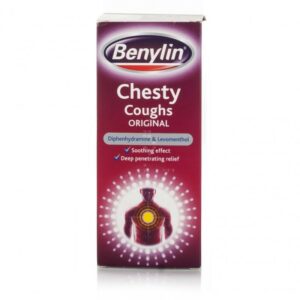
Benylin Chesty Cough Original
- Relieves Symptoms Of Common Cold
- Ingredients: Diphenhydramine, Levomenthol
- Buy With Confidence From UK Registered Pharmacy
£7.69 – £11.49 Select options -
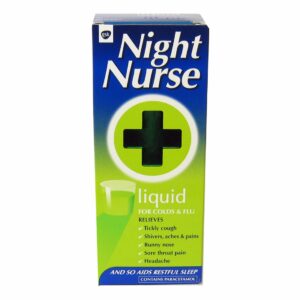
Night Nurse Syrup 160ml
- Relieves Cold And Flu Symptoms
- Active Ingredients: Paracetamol, Promethazine And Dextromethorphan Hydrobromide
- For Night-Time Use
£9.19 Select options -
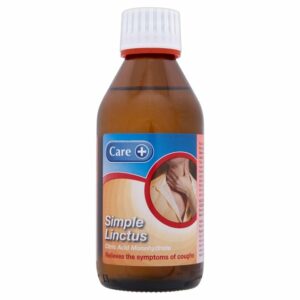
Simple Linctus Cough Syrup 200ml
- Relieves Mild Non-Specific Coughs
- Active Ingredient: Citric Acid Monohydrate
- Soothing Effect
£2.89 Add to basket -
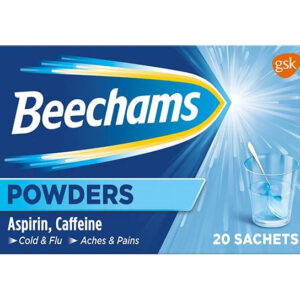
Beechams Powders Sachets
- Relieves Cold And Flu Symptoms
- Active Ingredients: Aspirin And Caffeine
- Also Treats Aches And Pains
£3.49 – £4.89 Select options -
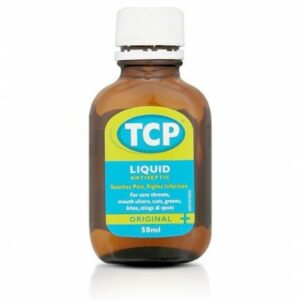
TCP Antiseptic Liquid
- Soothes pain, fights Infection
- For Use In Adults And Children
- Active Ingredients: Halogenated Phenols / Phenol
£4.39 – £6.80 Select options -
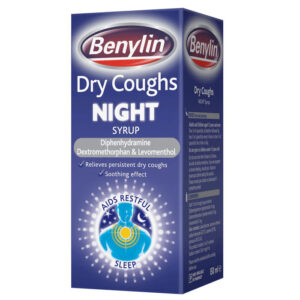
Benylin Dry Coughs Night Syrup
- Effective Relief For Dry Coughs
- Active Ingredients: dextromethorphan / diphenhydramine / levomenthol
- Buy With Confidence From UK Registered Pharmacy
£7.99 Select options -
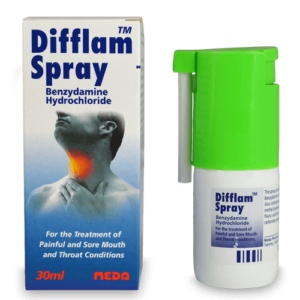
Difflam Throat And Mouth Spray – 30ml
- Active Ingredient : Benzydamine Hydrochloride
- Stops Pain & Swelling In The Mouth And Throat
- Next Day Delivery Available At Checkout
£7.09 Select options -
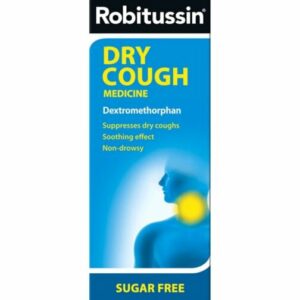
Robitussin Dry Cough – 250ml
- Effective Relief For Dry Coughs
- Active Ingredients:dextromethorphan
- Buy With Confidence From UK Registered Pharmacy
£7.65 Select options -
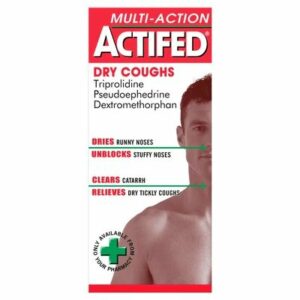
Actifed Dry Coughs Liquid – 100ml
- Active ingredients : Triprolidine, Pseudoephedrine & Dextromethorphan
- Helps Relieve Dry Coughs & Symptoms Related To Congestion
- Next Day Delivery Option Available At Checkout
£6.59 Select options -
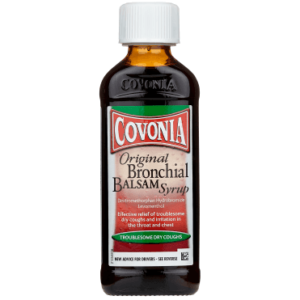
Covonia Original Bronchial Balsam Syrup – 150ml
- Active Ingredients: Dextromethorphan & Menthol
- Relieves a Dry Cough
- Buy With Confidence From UK Registered Pharmacy
£5.29 Add to basket -
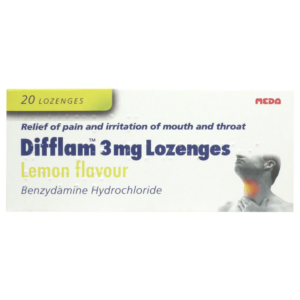
Difflam Lozenges 3mg – 20 Lozenges
- Relieves Pain and Irritation Of Mouth & Throat
- Active Ingredient : Benzydamine Hydrochloride
- Buy With Confidence From UK Registered Pharmacy
£9.09 Select options -
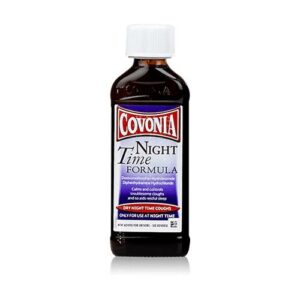
Covonia Night Time Formula – 150ml
- Effective Night Time Cough Relief
- Active Ingredients: Diphenhydramine & Dextromethorphan
- Buy With Confidence From UK Registered Pharmacy
£7.49 Select options -
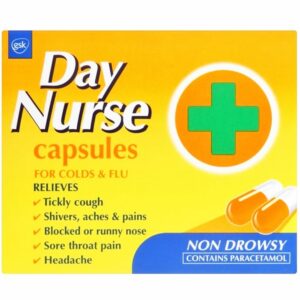
Day Nurse Capsules – 20 Capsules
- Relieves Cold And Flu Symptoms
- Active Ingredients: Paracetamol / Pseudoephedrine / Pholcodine
- For 24 Hour Relief
£10.49 Select options -
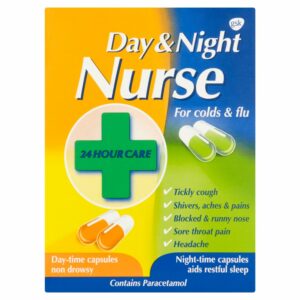
Day & Night Nurse Capsules – 24 Capsules
- Relieves Cold And Flu Symptoms
- Active Ingredients: Paracetamol, Pseudoephedrine Hydrochloride, Pholcodine, Promethazine Hydrochloride And Dextromethorphan Hydrobromide
- For 24 Hour Relief
£10.49 Select options -
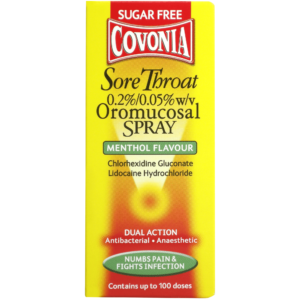
Covonia Oromucosal Spray – 30ml
- Numbs Pain & Fights Infection
- Active Ingredient : Lidocaine & Chlorhexidine
- Buy With Confidence From UK Registered Pharmacy
£8.39 Select options -

Fisherman’s Friend 25g
- Provides Relief For a Sore Throat and a Cough
- Buy With Confidence From UK Registered Pharmacy
- Next Day Delivery Available
£0.70 – £1.24 Select options -
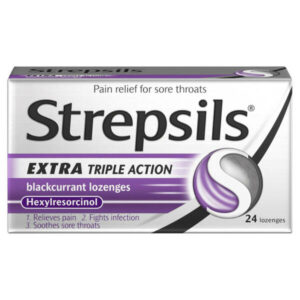
Strepsils Extra Triple Action Blackcurrant Lozenges – 24 Lozenges
- Effective Sore Throat Relief
- Active Ingredient: Hexylresorcinol
- Take Every 2-3 Hours
£5.59 Add to basket -
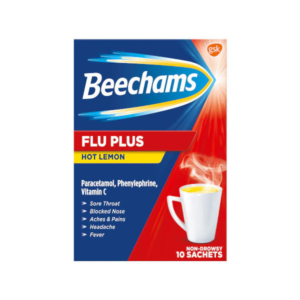
Beechams Flu Plus Hot Lemon – 10 Sachets
- Relieves Cold And Flu Symptoms
- Active Ingredients: Aspirin And Caffeine
- Also Treats Aches And Pains
£5.59 Select options -
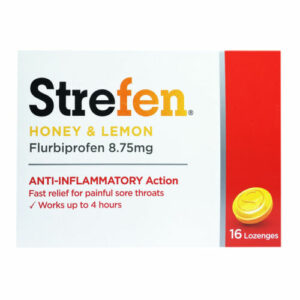
Strefen Throat Lozenges Honey & Lemon – 16 Lozenges
- Fast & long lasting relief for painful sore throats
- Anti-inflammatory action
- Contains Flurbiprofen 8.75mg
£6.09 Select options -
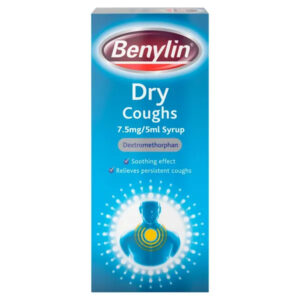
Benylin Dry Coughs 7.5mg/5ml Syrup – 150ml
- Relieves Symptoms Of Common Cold
- Ingredients: Dextromethorphan Hydrobromide
- Buy With Confidence From UK Registered Pharmacy
£7.99 Select options -
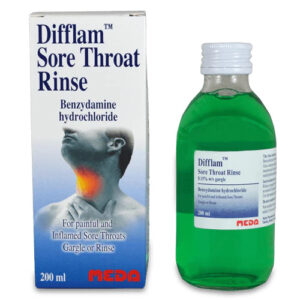
Difflam Sore Throat Rinse – 200ml
- For the relief of pain and inflammation in the throat and mouth
- To be rinsed or gargled
- Active Ingredient: Benzydamine Hydrochloride
£8.09 Select options -
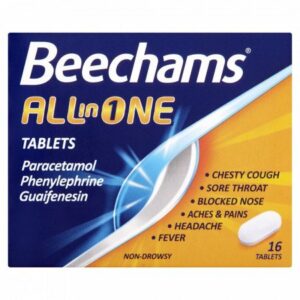
Beechams All In One Tablets – 16 Tablets
- Relieves Cold And Flu Symptoms
- Active Ingredients: Paracetamol, Guaifenesin And Phenylephrine Hydrochloride
- Non-Drowsy
£5.89 Select options -
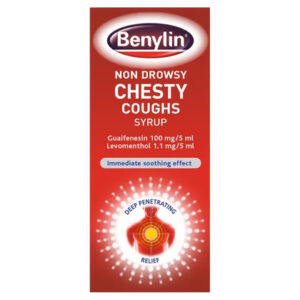
Benylin Chesty Coughs (Non-Drowsy) – 300ml
- Active Ingredients: Guaifenesin & Levomenthol
- Relieves Chesty Coughs
- Buy With Confidence From UK Registered Pharmacy
£7.39 Add to basket -
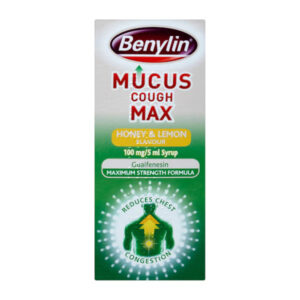
Benylin Mucus Cough Max Honey & Lemon – 300ml
- Active Ingredients: Guaifenesin
- Relieves Mucus Coughs
- Buy With Confidence From UK Registered Pharmacy
£9.99 Add to basket -
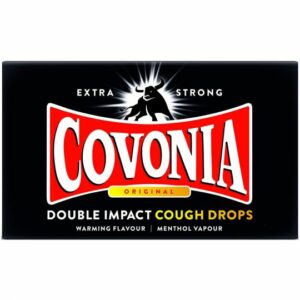
Covonia Double Impact Cough Drops
- Local pain-killer
- Relieve the symptoms of a sore and red throat
- Warming flavour
£2.09 – £2.39 Select options -
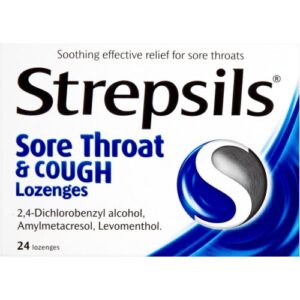
Strepsils Sore Throat and Cough – 24 Lozenges
- Effective Sore Throat Relief
- Take Every 2-3 Hours
- Buy With Confidence From UK Registered Pharmacy
£7.79 Select options -
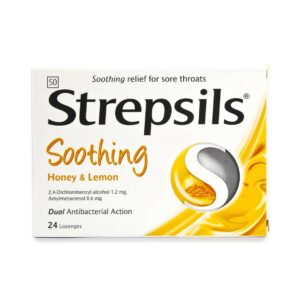
Strepsils Soothing Honey and Lemon Lozenges – 24 Lozenges
- Effective Sore Throat Relief
- Active Ingredients: Dichlorobenzyl Alcohol And Amylmetacresol
- Take Every 2-3 Hours
£6.39 Select options -
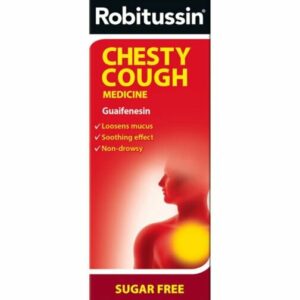
Robitussin Chesty Cough – 250ml
- Effective Relief For Chesty Coughs
- Active Ingredients: guaifenesin
- Buy With Confidence From UK Registered Pharmacy
£7.79 Select options -
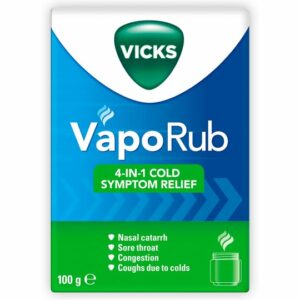
Vicks VapoRub 4-in-1 Cold Symptom Relief
- Effective Congestion Relief
- Buy With Confidence From UK Registered Pharmacy
- Next Day Delivery Available
£4.49 – £7.09 Select options -
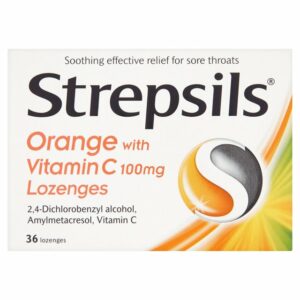
Strepsils Orange With Vitamin C – 36 Lozenges
- Effective Sore Throat Relief
- Take Every 2-3 Hours
- Buy With Confidence From UK Registered Pharmacy
£7.79 Select options -
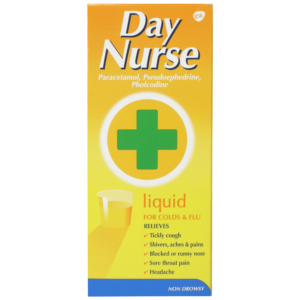
Day Nurse Liquid (240ml)
- Liquid For Colds & Flu
- Active Indredients: Paracetamol Pseudoephedrine & Pholcodine
- Buy With Confidence From UK Resgistered Pharmacy
£10.79 Select options -
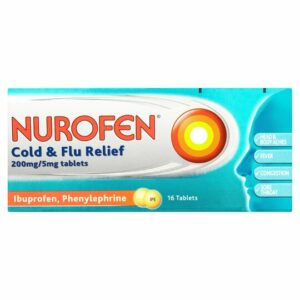
Nurofen Cold & Flu Relief 200mg/5mg – 16 Tablets
- Effective Cold & Flu Relief
- Active Ingredients: Ibuprofen & Phenylephrine
- Buy With Confidence From UK Registered Pharmacy
£7.49 Add to basket -
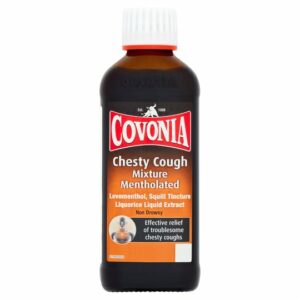
Covonia Chesty Cough Mixture – 150ml
- Active Ingredient: Peppermint Oil
- Suitable For Children Ages 5 And Up
- Effectively Relieves Congestion
£3.99 Add to basket -
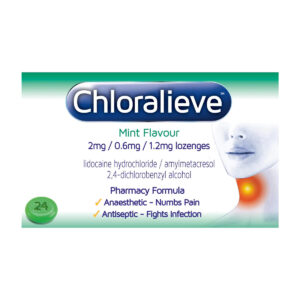
Chloralieve Mint Lozenges – 24 Lozenges
- Anaesthetic and Antiseptic
- Relieves Pain and Irritation Of Mouth & Throat
- Mint Flavour
£6.09 Add to basket -
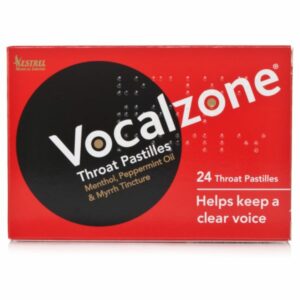
Vocalzone Throat Pastilles – 24 Pastilles
- Active Ingredients: Levomenthol Peppermint Oil & Myrrh Tincture
- Provides Effective Relief Of A Sore Throat
- Buy With Confidence From UK Resgistered Pharmacy
£5.49 Add to basket -
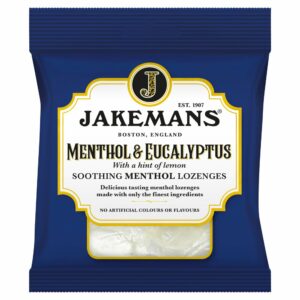
Jakemans Extra Strong Sweets Menthol & Eucalyptus 73g
- Soothing Vapour Action
- No Artificial Colours/Flavours
- Made With Only The Finest Ingredients
£1.79 Read more -
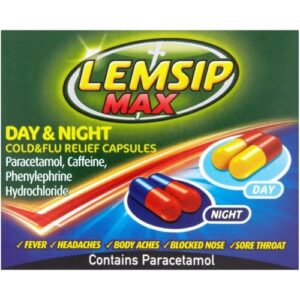
Lemsip Max Cold & Flu Relief Day & Night Capsules – 16 Capsules
- For The Relief Of Flu & Colds
- Active Ingredients: Paracetamol, Phenylephrine & Caffiene
- Buy With Confidence From UK Registered Pharmacy
£6.99 Select options -
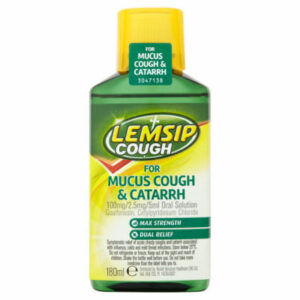
Lemsip Cough for Mucus Cough & Catarrh Syrup – 180ml
- Dual Relief & Max Strength
- For The Relief Of A Mucus Cough
- Active Ingredient: Guaifenesin & Cetylpyridinium
£8.15 Add to basket -
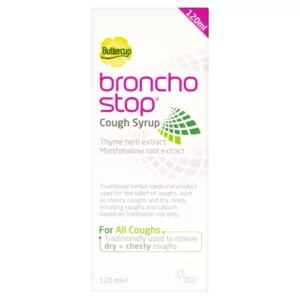
Buttercup Bronchostop Cough Syrup
- Relieves All Coughs
- Buy With Confidence From UK Registered Pharmacy
- Next Day Delivery Available
£8.49 – £11.69 Select options -
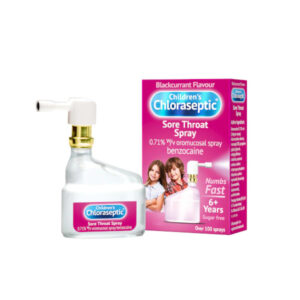
Childrens Chloraseptic Throat Spray 15ml
- Active Ingredients : Benzocaine
- Relieves Pain and Irritation Of Mouth & Throat
- Blackcurrant Flavour
£5.30 Add to basket -
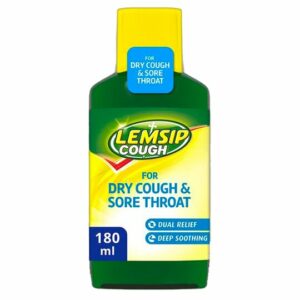
Lemsip Cough For Dry Cough & Sore Throat – 180ml
- Dual Relief & Deep Soothing
- For The Relief Of A Dry Cough
- Active Ingredient: Glycerol Citric, Lemon Oil Terpeneless, Purified Honey
£8.19 Add to basket -
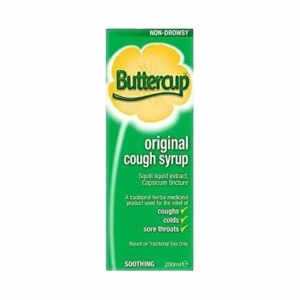
Buttercup Original Cough Syrup
- Effective Cough Relief
- Active Ingredients: Diphenhydramine & Dextromethorphan
- Buy With Confidence From UK Registered Pharmacy
£7.99 – £9.29 Select options -
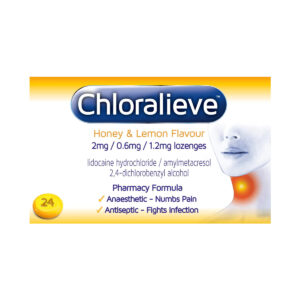
Chloralieve Honey & Lemon Lozenges – 24 Lozenges
- Anaesthetic and Antiseptic
- Relieves Pain and Irritation Of Mouth & Throat
- Honey & Lemon Flavour
£6.09 Select options -
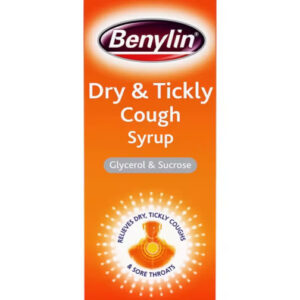
Benylin Dry & Tickly Cough Syrup 300ml
- Active Ingredients: Glycerol & Sucrose
- Relieves Dry & Tickly Cough
- Buy With Confidence From UK Registered Pharmacy
£10.19 Add to basket -
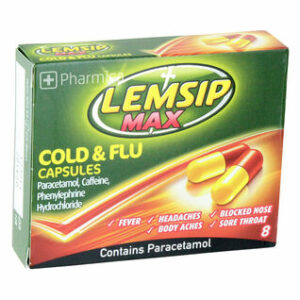
Lemsip Max Cold & Flu Capsules – 8 Capsules
- For The Relief Of Flu & Colds
- Active Ingredients: Paracetamol, Phenylephrine & Caffiene
- Buy With Confidence From UK Registered Pharmacy
£4.49 Add to basket -
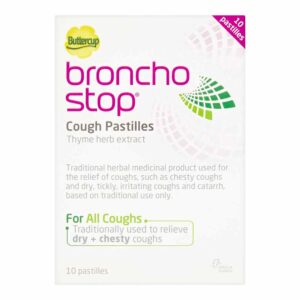
Buttercup Bronchostop Cough Pastilles – 10 Pastilles
- Relieves Dry & Chesty Coughs
- Buy With Confidence From UK Registered Pharmacy
- Next Day Delivery Available
£4.09 Add to basket -

Beechams All In One Liquid 160ml
- Effective Relief For Chesty Coughs
- Active Ingredients: paracetamol / phenylephrine / guaifenesin
- Buy With Confidence From UK Registered Pharmacy
£6.39 Select options -
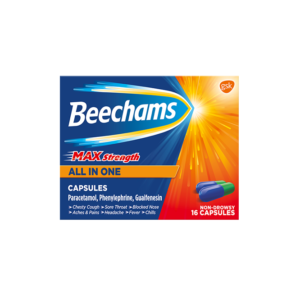
Beechams Max Strength All In One Capsules – 16 Capsules
- For The Relief Of Cold Or Flu
- Active Ingredients: Paracetamol, Phenylephrine & Guaifenesin
- Buy With Confidence From UK Registered Pharmacy
£7.39 Add to basket -
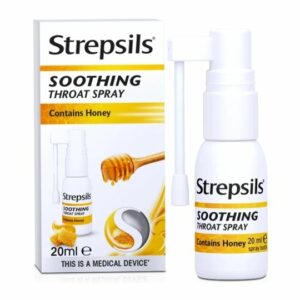
Strepsils Soothing Throat Spray 20ml
- Relieves Pain and Irritation Of Mouth & Throat
- Contains Natural Honey
- Buy With Confidence From UK Registered Pharmacy
£9.69 Select options -
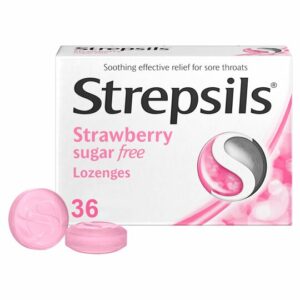
Strepsils Strawberry Sugar Free Lozenges – 36 Lozenges
- Effective Sore Throat Relief
- Active Ingredients: Dichlorobenzyl Alcohol And Amylmetacresol
- Take Every 2-3 Hours
£7.79 Select options -
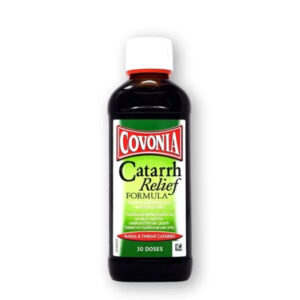
Covonia Catarrh Relief Formula – 100ml
- Active Ingredients: Burdock root / Hyssop
- Suitable for Vegetarians, Vegans & Coeliacs.
- Buy With Confidence From UK Registered Pharmacy
£6.49 Read more -

Covonia Catarrh Relief Formula – 150ml
- Active Ingredients: Burdock root / Hyssop
- Suitable for vegetarians, vegans and coeliacs
- Traditional herbal medicine
£9.50 Add to basket -
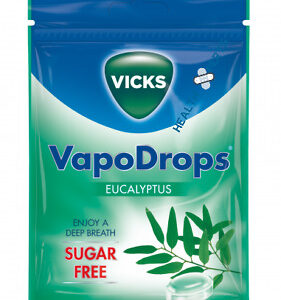
Vicks VapoDrops Sugar-Free 72g
- Easy To Take
- Relieves Impulse To Cough
- Fast Relief From Sore Throat
£2.79 Select options -
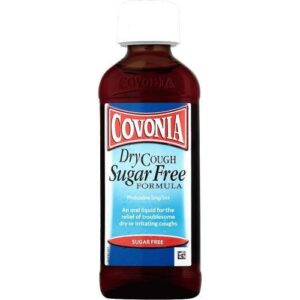
Covonia Dry Cough Formula Sugar Free – 150ml
- Active Ingredient: Pholcodine
- Relieves a Dry Cough
- Buy With Confidence From UK Registered Pharmacy
£6.39 Read more -
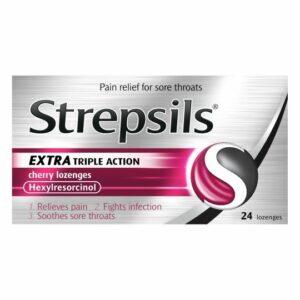
Strepsils Extra Triple Action Cherry Lozenges – 24 Lozenges
- Cherry flavoured lozenges
- Relieves pain, fights infection and soothes sore throats
- Contains Hexylresorcinol 2.4mg
£5.59 Add to basket -
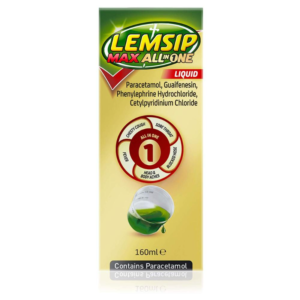
Lemsip Max All In One Liquid Syrup – 160ml
- For The Relief Of Coughs & Colds
- Active Ingredients: Paracetamol, Phenylephrine, Guaifenesin & Cetylpyridinium
- Buy With Confidence From UK Registered Pharmacy
£8.49 Read more -
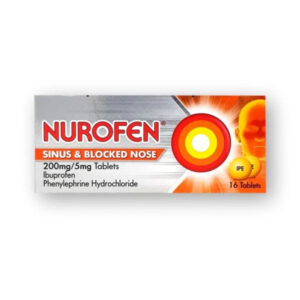
Nurofen Sinus & Blocked Nose 200mg/5mg Tablets – 16 Tablets
- For The Relief Of Flu & Colds
- Active Ingredients: Phenylephrine & Ibuprofen
- Buy With Confidence From UK Registered Pharmacy
£6.69 Read more -
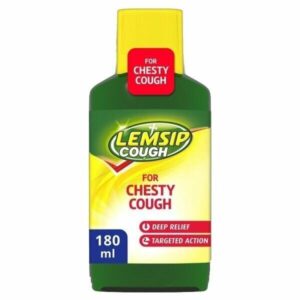
Lemsip Cough Chesty Syrup – 180ml
- For The Deep Relief Of A Chesty Cough
- Active Ingredient: Guaifenesin
- Buy With Confidence From UK Registered Pharmacy
£9.99 Read more -
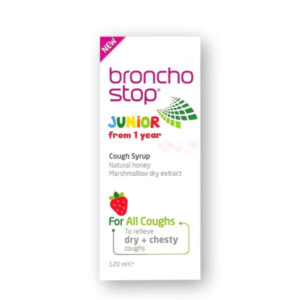
Buttercup Bronchostop Junior Cough Syrup – 120ml
- For The Relief Of A Cough
- Traditional Herbal Medicine
- Buy With Confidence From UK Registered Pharmacy
£6.99 Add to basket -
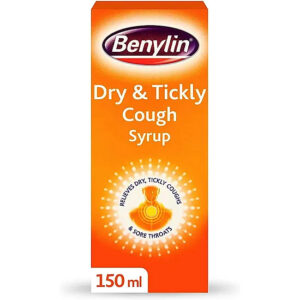
Benylin Dry & Tickly Cough Syrup 150ml
- Active Ingredients: Glycerol & Sucrose
- Relieves dry, tickly coughs & sore throats
- Non-drowsy formulation
£6.29 Add to basket -
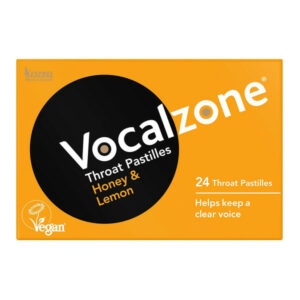
Vocalzone Throat Pastilles Honey & Lemon – 24 Pack
- Soothes and clears, helps keep a clear voice
- Relieves throat from irritation
- Contains powerful active ingredients
£4.79 Add to basket -
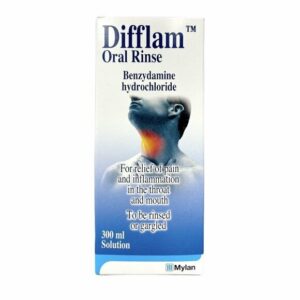
Difflam Sore Throat Rinse – 300ml
- For the relief of pain and inflammation in the throat and mouth
- To be rinsed or gargled
- Active Ingredient: Benzydamine Hydrochloride
£11.99 Select options
-
About
A sore throat, medically known as pharyngitis, is a common ailment characterised by irritation, discomfort, or pain in the throat. This condition can arise from various causes, including viral infections like the common cold or flu, bacterial infections such as streptococcus (strep throat), and environmental factors like dry air, pollution, or allergens. Additionally, lifestyle habits such as smoking or excessive shouting can contribute to the development of a sore throat. Understanding the underlying cause is crucial for effective treatment and management.
-
Symptoms of a Sore Throat
The symptoms of a sore throat can vary depending on the underlying cause but typically include:
Pain or Scratchiness: A persistent pain or scratchy sensation in the throat that may worsen when swallowing or talking.
Redness: The throat and tonsils may appear red and swollen.
Swollen Glands: Lymph nodes in the neck may become enlarged and tender.
White Patches: In cases of bacterial infection, white patches or streaks of pus may be visible on the tonsils.
Hoarseness: Voice changes or hoarseness due to irritation of the vocal cords.
Difficulty Swallowing: A feeling of discomfort or pain when swallowing food or liquids.
Associated Symptoms: Depending on the cause, symptoms like fever, cough, runny nose, headache, or body aches may accompany a sore throat.It’s important to seek medical attention if symptoms are severe, persist for more than a week, or are accompanied by difficulty breathing, joint pain, or a high fever, as these may indicate a more serious condition.
-
Diagnosis of a Sore Throat
Diagnosing a sore throat typically involves a combination of medical history assessment and physical examination. A healthcare professional may:
Review Symptoms: Discuss the onset, duration, and severity of symptoms.
Examine the Throat: Look for signs of redness, swelling, or white patches.
Check for Swollen Glands: Feel the neck for enlarged lymph nodes.
Perform a Rapid Strep Test: If strep throat is suspected, a quick swab of the throat can provide results within minutes.
Conduct a Throat Culture: In some cases, a sample from the throat may be sent to a lab to identify the cause of the infection.
Assess Other Symptoms: Consider other symptoms such as fever, cough, or runny nose to determine if the sore throat is part of a larger illness.Accurate diagnosis is crucial for determining the appropriate treatment and management plan.
-
Treatment
Over-the-counter sore throat medicines can provide relief by soothing the throat, reducing inflammation, and alleviating pain. Some recommended products include:
Difflam Throat and Mouth Spray: An anti-inflammatory spray that targets pain and swelling.
Strepsils Lozenges: Antiseptic lozenges that soothe and provide symptomatic relief.
Covonia Throat Spray: A dual-action formula that eases pain and irritation.
Ultra Chloraseptic Throat Spray: Offers fast-acting relief by numbing the throat.These medications are formulated to address various sore throat symptoms. It’s important to select a product that targets your specific needs and follow the instructions on the packaging.
-
Prevention Strategies
To prevent sore throats effectively, it’s important to adopt comprehensive measures:
Hydration: Keeping your throat moist by drinking ample water or herbal teas can prevent irritation.
Hygiene Practices: Regular handwashing and avoiding close contact with sick individuals can reduce the spread of infectious agents.
Environmental Factors: Minimise exposure to irritants like smoke, chemicals, and allergens, which can trigger throat discomfort.
Humidification: Using a humidifier, especially in dry climates or heated indoor environments, can help maintain throat moisture.
Diet and Nutrition: A balanced diet rich in vitamins and minerals supports immune function, while avoiding excessively spicy or acidic foods can reduce throat irritation.
Oral Care: Regular oral hygiene, including brushing and flossing, can prevent infections that may lead to sore throats.
Voice Care: Avoid straining your voice by shouting or speaking for prolonged periods, as this can lead to throat strain.Implementing these steps can significantly reduce the likelihood of developing sore throats and promote overall throat health.












